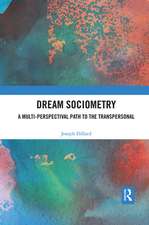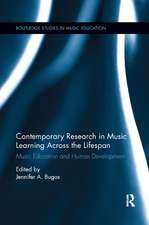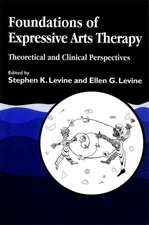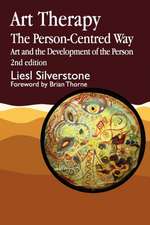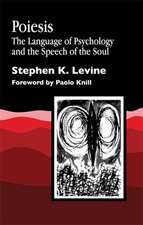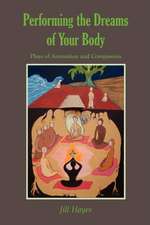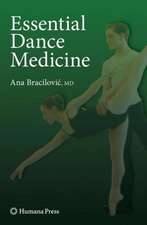Philosophy of Expressive Arts Therapy
Autor Stephen K. Levineen Limba Engleză Paperback – 17 iul 2019
The concept of poiesis was originally developed and brought into the field by Stephen K. Levine. It is a perspective that restores the primacy of the arts for the arts therapies instead of reducing art-making and art-objects to psychological data. Bringing together different schools of thought in unexpected ways, this book shows how the principles underlying expressive arts therapy have relevance to ethics, politics and social change. It includes chapters on Taoism, improvisation in the arts, and the importance of creativity for understanding human existence.
With personal narratives and poetry to help create natural points for the reader to stop and reflect, Philosophy of Expressive Arts Therapy is the perfect guide for those wanting to understand the role of the arts and art-making in life and in therapeutic change.
Preț: 174.07 lei
Preț vechi: 239.58 lei
-27% Nou
Puncte Express: 261
Preț estimativ în valută:
33.31€ • 34.65$ • 27.50£
33.31€ • 34.65$ • 27.50£
Carte disponibilă
Livrare economică 24 martie-07 aprilie
Livrare express 08-14 martie pentru 73.90 lei
Preluare comenzi: 021 569.72.76
Specificații
ISBN-13: 9781787750050
ISBN-10: 1787750051
Pagini: 176
Dimensiuni: 152 x 224 x 16 mm
Greutate: 0.25 kg
Editura: JESSICA KINGSLEY PUBLISHERS
ISBN-10: 1787750051
Pagini: 176
Dimensiuni: 152 x 224 x 16 mm
Greutate: 0.25 kg
Editura: JESSICA KINGSLEY PUBLISHERS
Cuprins
1. Poiesis, Therapy and the Arts. 2. Poiesis: From Phenomenology to Imagination. 3. The Way of Poiesis: A Chinese Perspective. 4. Poiesis, Improvisation, Identity. 5. Last Words.
Descriere
This book is the culmination of Stephen K. Levine's work and expands on the concept of poiesis, the art of 'making' as foundational for the field of expressive arts therapy. It enables practitioners to reflect on the basic concepts underlying their therapeutic work, and introduces concepts from Taoist and Western philosophy.

